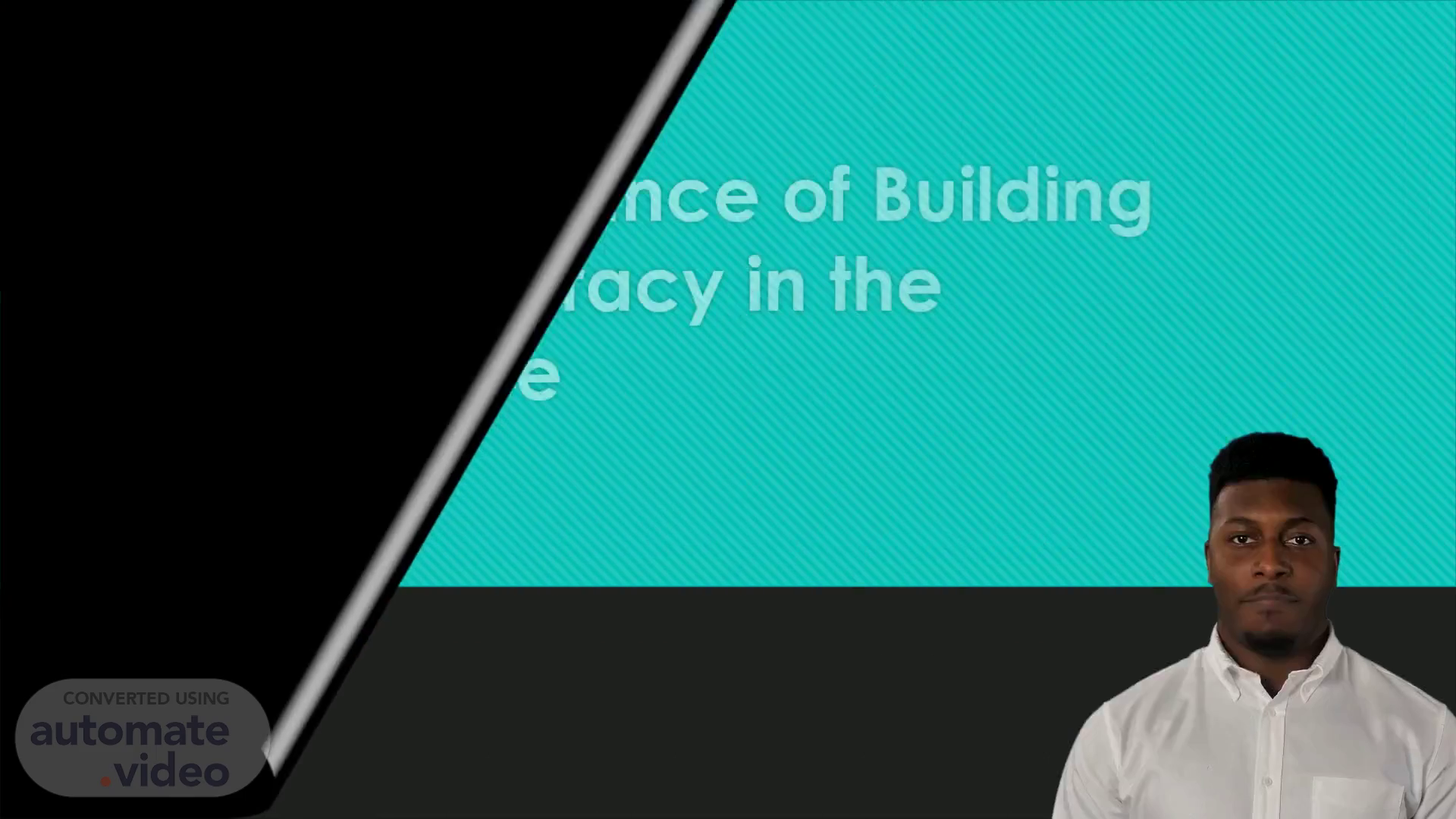
Page 1 (0s)
[Virtual Presenter] Good morning everyone, Today I will be discussing the importance of building digital literacy in the workplace. As the world has shifted to a digital landscape, it has become increasingly important to stay up-to-date on technology and digital tools and their use in the professional setting. In this presentation, I will outline why digital literacy is important and how a lack of digital literacy skills can lead to decreased productivity and increased turnover rates..
Page 2 (34s)
[Virtual Presenter] The COVID-19 epidemic has pushed the need for employees to have highly developed digital skills for use in the workplace. Digital literacy is a must for our workforces to be successful in the digital age. Yet, there is still a gap between the number of employees with highly developed digital literacy skills and those who have yet to acquire them. It is essential that we bridge this gap to ensure our future success..
Page 3 (1m 1s)
[Audio] The rapid adoption of digital technologies has created a skills gap, as many employees lack the knowledge and skills to effectively leverage these tools. This gap can lead to decreased production, decreased job satisfaction, and even increased turnover rates. It is therefore essential for employers and employees alike to understand the importance of digital literacy and work together to bridge the skills gap. By doing so, they can ensure a productive and successful digital-oriented workforce..
Page 4 (1m 34s)
[Audio] Having a digitally literate workforce is essential. Digital literacy not only improves job performance and career opportunities, but also helps the workplace innovate, be creative, and gain an edge in the marketplace. It has become a key factor in determining a successful career and is a must-have ability for employers when hiring. Investing in digital literacy training will ensure a well-prepared and engaged workforce that can make the most of the digital world..
Page 5 (2m 3s)
[Audio] Digital literacy is essential for companies to bridge the gap between the skills currently needed and those that already exist. To ensure their employees remain knowledgeable and can use technology effectively, companies should provide regular training and create a culture of continual learning. Employees can also take advantage of online educational opportunities and certifications to further their professional development, allowing companies to be certain that their workforce is equipped with the necessary skills to stay competitive..
Page 6 (2m 34s)
[Audio] Digital literacy is becoming increasingly important in the post-pandemic workplace. To remain competitive and successful, organizations must address the digital skills gap through training and development initiatives that can lead to greater productivity, job satisfaction, and career advancement opportunities. Building digital literacy should be a key part of organizations’ strategic plans for the digital age as it can have many benefits, making it an important priority..
Page 7 (3m 2s)
[Audio] We have discussed the importance of building digital literacy in the workforce, evidence of the need and ways to accomplish this. Research has shown us that the digitalization of work and employment is already underway and that it is only accelerating. Organizations like the World Economic Forum and Deloitte have also spoken of the need to begin to prepare for a post-COVID-19 future. We must look to organizations like McKinsey and Company for ideas on how to develop digital skills at scale, and to Harvard Business Review for guidance on why lifelong learning is imperative. According to the Pew Research Center, we have seen that technology use has grown exponentially in the time of COVID-19. In conclusion, digital literacy is absolutely necessary and the evidence we have seen today shows that we can not afford to ignore it any longer. Thank you for your attention..